Right now our attention is on adolescents as writers and as people who are responsible for their own growth and learning. Before Jo talks about the Boot Camp, I would like to mention two ways other ways in which students will be front and center at NCTE 2019. First, once again, R. Bryon Stringer will be bringing students who will perform with the Toe Tag Monologues (see a previous post). Second, my friend, colleague, author, and frequent contributor to the blog, Sarah Donovan will be escorting a group of seventh graders to NCTE 2019 to talk about student inquiry. I am sure that both groups can use your support.
Thanks Jo, take it away.
Teen Author Boot Camp by Jo Schaffer
Most of us assume that we own our ideas. But as the work of renowned psychoanalyst Carl Jung suggests... maybe ideas own us. In the creative world this can be a good thing. What else besides possession could compel an otherwise sane person to talk to multiple people in their head, write through the night, pace and rant and generally behave like a lunatic in order to finish an entire novel?
But this ability to be possessed by ideas is a double edged sword. Some that take hold of us can largely be the thoughts and viewpoint of influencers who pull the proverbial strings that make the culture dance. And sometimes that dance isn’t pretty. We’re not programmed to take in all the information but to find what reinforces the frame presented to us—whether it’s true or not.
We live in a time when critical thinking is…well, critical. It’s an intense time to be growing up. One of the best ways for young people to process and explore their own thoughts and ideas amid the noise is through the written word. Creative expression transcends regurgitated indoctrination. It encourages the authentic spaces of the mind to express themselves. Creativity dips into the truths within each of us. A truth necessary to navigate oneself through a sea of conflicting ideas.
We need young writers and young people need to write. This can be facilitated by encouraging kids to find their voice, tap into creative flow, and by giving them opportunities to share their ideas and stories.
Years ago, my writing group and I were discussing the particular dilemma of being a creative and sensitive teen. When we were young there seemed to be clubs and auxiliaries for so many kinds of interests—but what about that odd kid who likes to write? The flabby and faded curriculum of the English department of my youth was in no way dynamic or relevant to my encounter with the world. Where was the literature that spoke to me in my time? Was there a place for my stories?
It’s important to be familiar with the great works of the long dead which carry important themes and present timeless tropes. The 12th century author John of Salisbury said "We are like dwarfs sitting on the shoulders of giants. We see more, and things that are more distant, than they did, not because our sight is superior or because we are taller than they, but because they raise us up, and by their great stature add to ours."
But, not to rest upon our giants, an update is sorely needed. What better voice for the future than the future itself? Young people, when given the wisdom of the past and tools to express themselves are an important part of our combined cultural narrative as we move forward.
My writing group and I wondered how we could offer the support and skills teens would need to break through the framing and tap into their own ideas and stories? We landed on the idea of creating a writing conference for teens and fostering a subculture for the young and book-inclined. We wanted to find those who have already discovered their inner bibliophile and to also get the marginalized and voiceless kids excited about books—whether reading them or writing them.
At our first Teen Author Boot Camp (TABC) event there were around 130 kids, which was great for a first time conference. This year we’re looking to hit almost one thousand attendees. Apparently, kids care about writing, especially when they have creative freedom and are empowered to feel they have something to contribute to the collective dialog.
There’s a lot going on inside of kids that they don’t feel safe expressing in the real world. With anxiety, depression and suicide on the rise, writing allows kids to emote the feelings trapped inside. Author and podcast host Adam Grant said, “Expressive writing has also been linked to improved mood, well-being and reduced stress levels for those who do it regularly.”
Creative writing can help the medicine go down, but it’s also a good way to encourage critical thinking and foster a sense of empowerment. It prepares them to be successful communicators in times when effective communication is crucial.
Following are some things to keep in mind if you want to encourage creative writing in kids:
Actor and rapper Mahershala Ali says, “Social media has colonized what was once a sacred space occupied by emptiness: the space reserved for thought and creativity.”
For many kids, self-expression has been reduced to a status update. They’re expected to mimic one another in how they present themselves and what they think. Creative writing helps them to turn off that noise and the demand to mirror what’s outside and instead, reflect what’s inside.
Kids are still finding their voice. A class-like setting often sets up expectations to get it “right” or to do whatever it takes to get an “A”. There’s a lot to inhibit kids from participating freely and authentically. Kids need validation to be willing to reveal their inner world.
E.E. Cummings said, “Once we believe in ourselves, we can risk curiosity, wonder, spontaneous delight or any experience that reveals the human spirit.”
Kids yearn to know themselves. Have them take a quick personality quiz or the color code test and let them share the results with one another. They’ll identify some similarities and differences. Appreciating their uniqueness gives kids permission to speak their mind and interpret things their own way. They’ll realize they don’t have to sound like everyone else.
New York Times bestselling YA Author, Marie Lu in her keynote address at Teen Author Boot Camp encouraged kids to be fiercely themselves when they write. She told them, “Writing is your rebellion.” The loud applause after her statement testified to how much kids want their own voice.
There needs to be the proper environment for things to grow. Showing you care about what kids think and engaging with their questions and suggestions is like fertilizer. Allow them time to think and express themselves freely. How a mentor speaks to them can invite sharing, mutual respect and trust. You’re asking them to be vulnerable. As Ernest Hemingway aptly put it, “There is nothing to writing. All you do is sit down at a typewriter and bleed.”
Sitting quietly at a desk isn’t conducive to learning in auditory, kinetic and verbal ways. Let it get a little loud sometimes. Allow kids to move around, talk in groups and try some hands on activities. Regardless of what you’ve prepared, let the kids riff a little. That’s when creativity happens.
In a creatively fecund environment and with a basic understanding and appreciation of their own voice, kids are primed to tap into their own stories. Let them think for themselves and pose their own questions. Resist imposing your voice on them. Allow the differences—this isn’t math!
As past TABC keynote Author Brandon Sanderson has said, “The purpose of a storyteller is not to tell you how to think, but to give you questions to think upon.”
Allow kids to “flow write”. Tell them not to worry about edits at first. Give encouraging feedback and then show them how to identify their own weaknesses before you point them out.
Freedom to improvise allows creativity to grow, but so do limitations. There are many games and activities that give structure while offering freedom to think around the rules.
Writing prompts are a “limitation” that will spark the imagination. They can be pictures, music, scene suggestions, dialog, or a question to get their minds going. Writing games and the opportunity to share results get kids excited to tell stories and help them recognize there are countless possibilities in the telling.
Everyone likes recognition. Incentives and opportunities to shine are a great motivators. Writing contests and prizes encourage kids to create and achieve.
In addition to a yearly First Chapter Contest, Teen Author Boot Camp has recently partnered with Owl Hollow Press. Kids submit short stories that may be chosen to be published in an anthology. Teens have the chance to share the spotlight at the TABC book signing with some New York Times bestselling authors. This is the ultimate validation and encouragement for kids who love to write!
Run a writing contest where the winning pieces are featured in a blog or newsletter. Any kind of reward helps some kids to reach inside themselves and pull out some incredible words.
Both the students and teacher need to be willing to be known. Let them share what they have written. Read them things that resonate with you and tell them stories from your personal experiences. Pull out your embarrassing, old manuscripts and poems so they can enjoy your mortification. When you allow them to see your mistakes they’ll feel safer making their own.
Do writing prompts and activities along with them. If you offer feedback and rewrite suggestions- allow discussion and even disagreements. Some things they’ll have to learn over time or the hard way. Just get them writing and enjoying the written word.
Writing helps kids feel that they belong. It lets them join the conversation between the generations and contribute to the collective narrative. No matter the subject, topic, time, or place, writing can be relevant to kids in the world they live in now.
F. Scott Fitzgerald said, “That is part of the beauty of all literature. You discover that your longings are universal longings, that you're not lonely and isolated from anyone. You belong.”
Everyone belongs. Imposed ideas are unnecessary battle grounds that lead to isolation and discord. For communication to cross the generational and cultural gaps we have to know how and what kids think. We need to help them find their voice—not learn to echo ours. Creative writing builds communication bridges and fosters individualization and lifelong learning. When a young person finds their voice, they become more eager and engaged in the conversation. More inclined to read what other voices say and ultimately own their ideas and unique view of the world.
The success of Teen Author Boot Camp has been encouraging. If more mentors support young people in their desire to creatively express themselves and provide them with the tools and an outlet for their voice, it will enrich their present and gift our future as a society.
“One of the biggest indicators of a youth’s future success is their ability to read and write well. In the years since it was started, Teen Author Boot Camp has become one of the best teen writers’ conferences in the country. I’ve been extremely impressed by the quality of the classes, teachers, and writing contest. This is the total package. Teen writers come away inspired to polish their writing skills as well as being excited to read more.” Author, J. Scott Savage.
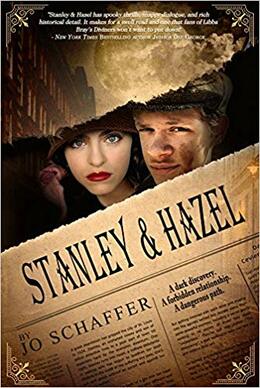
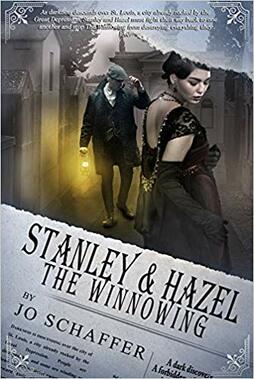
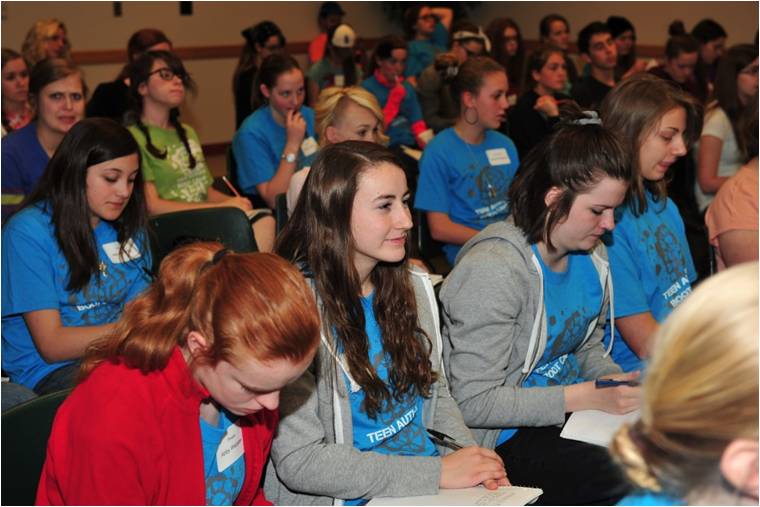
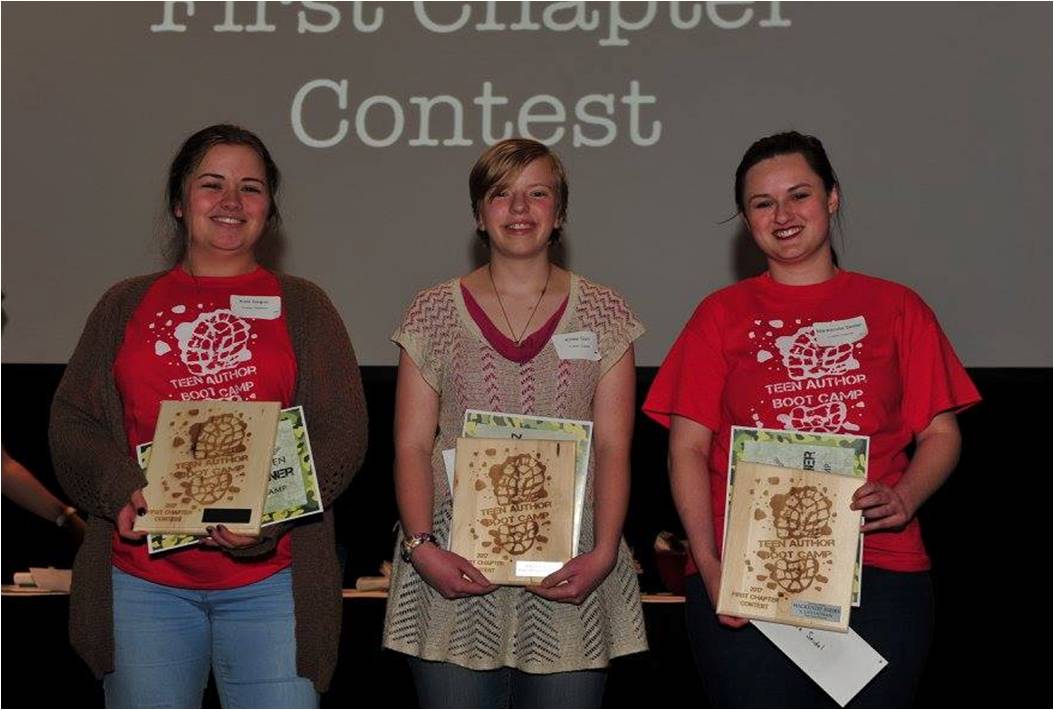
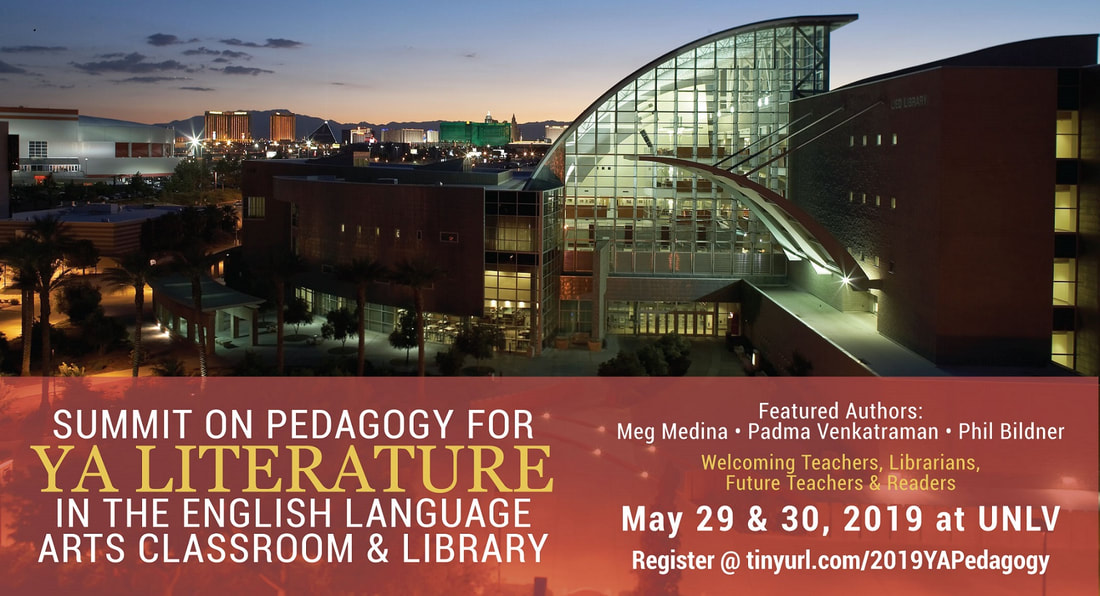

 RSS Feed
RSS Feed